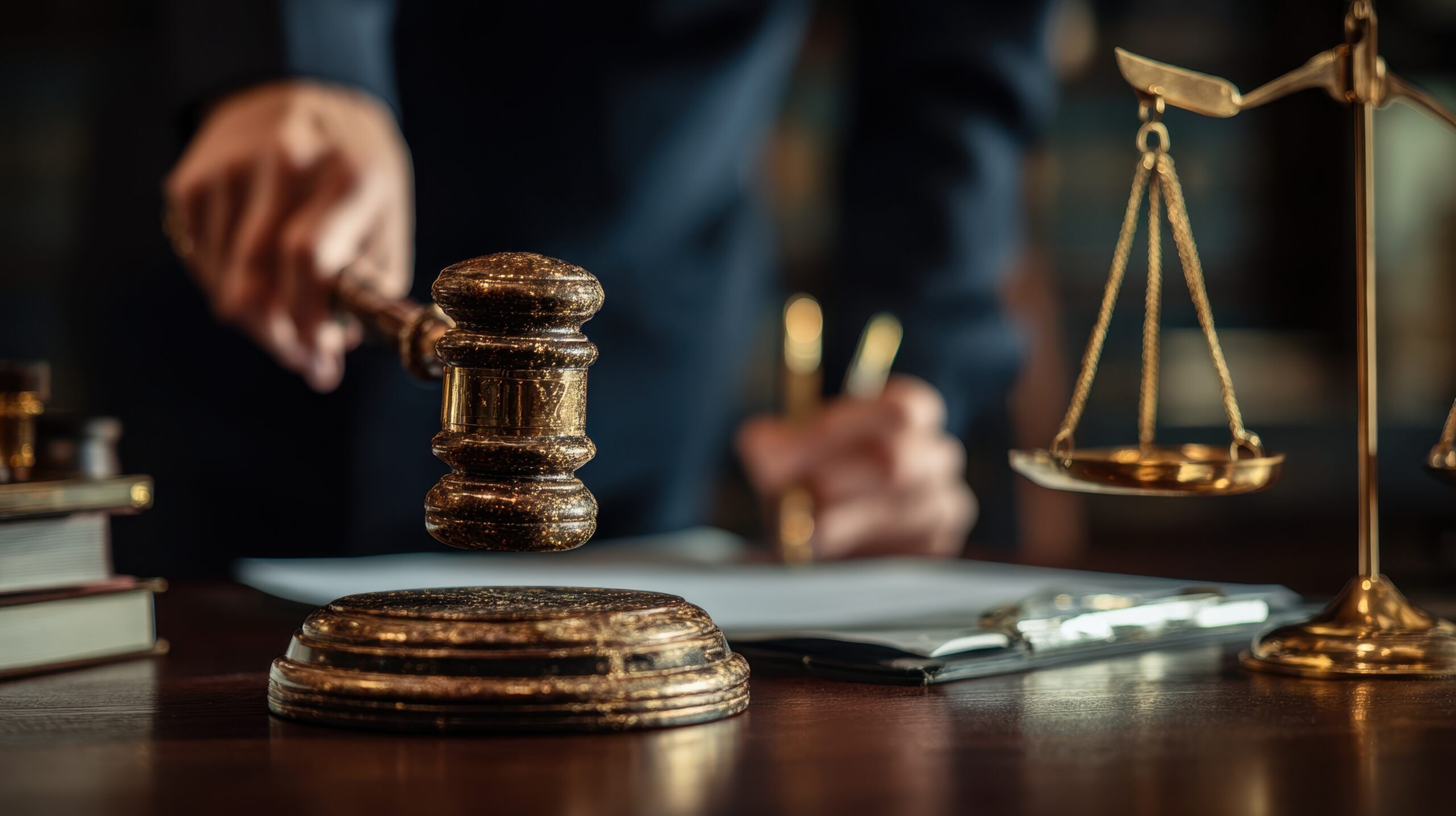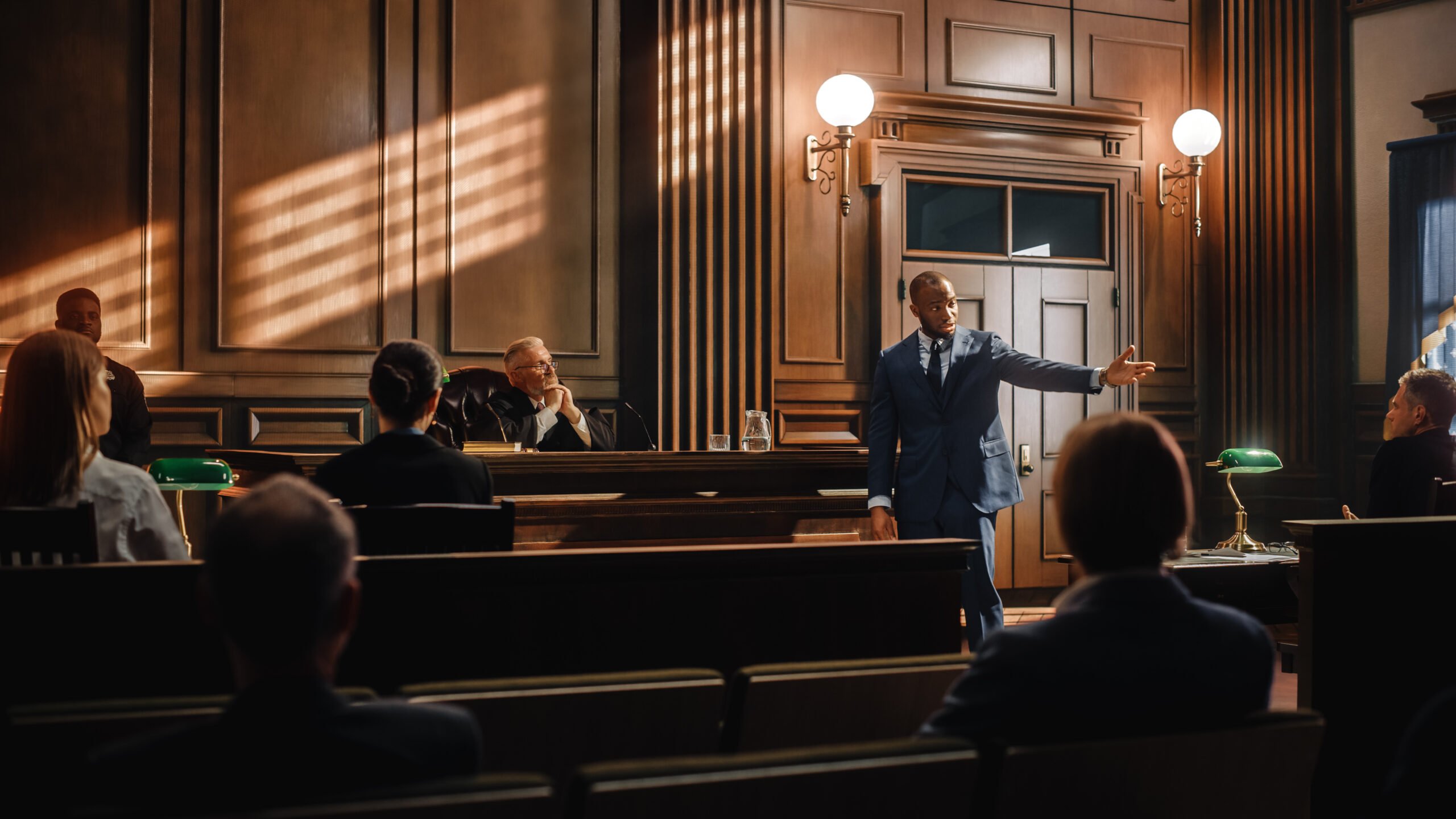Facing a civil or family law trial in Indiana? How you prepare and act before, during, and after your trial can dramatically impact your ability to challenge an unfair outcome. Learn how to meticulously preserve your right to appeal—and avoid the procedural traps that stop most appeals before they even start.
Index
- Introduction to Appeals in Indiana
- What It Means to “Preserve the Record”
- Why Preservation Matters
- Common Preservation Scenarios
- Pretrial Considerations That Affect Appeal Rights
- Strategic Motions and Issue Framing
- Pretrial Discovery’s Role
- Making and Objecting to Evidence at Trial
- On-the-Record vs. Off-the-Record
- Types of Objections
- Sidebar: “Did You Know? Typical Evidence Errors”
- Creating a Clear Trial Record for the Appellate Court
- Building a Comprehensive Record
- Handling Transcripts and Exhibits
- Checklist: What Belongs in Your Trial Record?
- Post-Trial Motions and Why They Matter
- Motions to Correct Error
- Motions for New Trial
- Sidebar: Indiana Timelines for Filing Motions
- Deadlines and Filing Requirements for Appeal
- Filing Your Notice of Appeal
- Formatting and Procedural Rules
- Table: Key Deadlines at a Glance
- What the Indiana Appellate Court Reviews
- Standard of Review Explained
- Examples of Issues That Can Be Reviewed
- Common Mistakes That Jeopardize Appeal Rights
- Missing the Deadline
- Failing to Object
- Incomplete or Unclear Record
- Callout: Preventing Appeal-Killing Errors
- Working with an Indiana Appellate Attorney
- How an Attorney Makes the Difference
- What to Expect in an Appellate Consultation
- Conclusion
- FAQs
- Disclaimer
- References
Introduction to Appeals in Indiana
Legal battles—especially those involving divorce, custody, or asset division—rarely end when the judge gavels the case closed. In Indiana, two main appellate courts, the Indiana Court of Appeals and the Indiana Supreme Court, review cases for legal errors and procedural missteps that may have unjustly influenced the outcome.
Why is preserving your right to appeal so important? Because the appellate courts are not there to retry your case or second-guess the trial judge on facts. Their role is to catch mistakes in law, not re-evaluate every detail. Failure to follow the right steps early can close the door to justice.
Internal resource: See Preserving Your Right to Appeal: What to Do Before and After a Trial in Indiana
What It Means to “Preserve the Record”
Why Preservation Matters
Preserving the record means making sure every legal objection, contested issue, and critical piece of evidence is documented for later review. If it’s not “on the record,” the appellate court simply cannot consider it, no matter how unjust it seems.
Example: If the trial judge allows questionable testimony and no objection is made, you cannot challenge it on appeal. The issue must be raised formally and entered in the transcript or with a written motion.
Common Preservation Scenarios
- Trial Objections: Object to improper evidence, witness behavior, or procedural errors—promptly and clearly.
- Motion Practice: When the court rules against you on a motion (such as a motion in limine), ensure the objection and legal reasoning is fully stated.
- Rulings and Explanations: Ask for detailed rulings and explanations from the judge to clarify appellate grounds.
Internal resource: For trial strategy, see How Do Trial Courts and Appellate Courts Differ?
Pretrial Considerations That Affect Appeal Rights
Strategic Motions and Issue Framing
Most appellate issues trace back to motions made in advance of trial, like:
- Motions in Limine: Attempt to block or allow certain evidence; denial sets up an appellate argument.
- Jurisdictional Challenges: Limits the court’s ability to hear your case; a denied challenge can be grounds for appeal.
- Summary Judgment Motions: Argue that no trial is needed due to clear facts; denial may be reviewable.
Document every contested issue and motion meticulously, noting the basis and court’s rationale.
Pretrial Discovery’s Role
Disputes over evidence—what is disclosed, withheld, or used in trial—often shape appellate arguments. Track refusals or unusual court orders and object when necessary, always putting your rationale on the record.
External link: For the Indiana Rules of Trial Procedure, visit the official Indiana Court Rules.
Making and Objecting to Evidence at Trial
On-the-Record vs. Off-the-Record
Any objection must be voiced “on the record”—either orally for inclusion in the transcript, or in formal written motions. Private discussions or informal sidebars generally do not count for appellate review.
Types of Objections
- Form Objections: e.g., “Objection, hearsay!” Must be clear and specify the legal basis.
- Substance Objections: Challenge the admissibility, relevance, or foundation of evidence.
- Procedural Objections: Address trial conduct, jury instructions, or court procedure errors.
Persistence is key: If initially overruled, renew objections at every relevant stage.
Sidebar: “Did You Know? Typical Evidence Errors”
Many appellate reversals in Indiana stem from improper admission of hearsay, exclusion of critical documents, or misapplied procedural rules. In some cases, these errors are only detected by a second set of legal eyes—reinforcing the value of skilled counsel.
“Most appeal failures occur because objections are never made or ruled upon during trial—making them invisible to appellate judges.”
Creating a Clear Trial Record for the Appellate Court
Building a Comprehensive Record
Indiana appellate courts review only the official trial record, which includes:
- Transcripts of every hearing and proceeding.
- Exhibits entered as evidence.
- Written motions, court orders, and judgments.
Careful attention to documenting each argument, ruling, and objection allows for comprehensive appellate review.
Handling Transcripts and Exhibits
- Request Transcripts Promptly: Get a certified copy from the court reporter immediately after trial.
- Exhibit List: Double-check that every exhibit filed is appropriately listed and described.
- Judgment Entry: Ensure the final judgment states the legal basis clearly.
Checklist: What Belongs in Your Trial Record?
- Statement of issues anticipated for appeal
- Each objection noted, with supporting legal reasons
- All key exhibits entered and labeled
- Motions and orders explicitly included
- Full transcript covering both trial and pretrial matters
Internal resource: For more on appellate record preparation, read How to Navigate the Appellate Process in Indiana
Post-Trial Motions and Why They Matter
Motions to Correct Error
Filed within 30 days of final judgment, motions to correct error allow litigants to address misapplications of law, overlooked evidence, or other substantial mistakes. If denied, the denial itself may become an appellate issue, provided everything is documented.
Motions for New Trial
If profound procedural or legal errors occur, or new crucial evidence surfaces, you can request a new trial. Arguments must be made specific; vague generalities are not sufficient for preservation.
Sidebar: Indiana Timelines for Filing Motions
| Motion Type | Deadline After Judgment | Reviewable on Appeal? |
| Motion to Correct Error | 30 days | Yes |
| Motion for New Trial | 30 days | Yes |
| Notice of Appeal | 30 days | Yes |
Missing these deadlines nearly always waives your rights for that issue—be vigilant!
Internal resource: See Indiana Appellate Deadlines: Key Dates Every Litigant Must Know
Deadlines and Filing Requirements for Appeal
Filing Your Notice of Appeal
A Notice of Appeal is the document that alerts the courts and other parties of your intent to challenge the decision. In Indiana, this is due within 30 days of the final judgment.
Formatting and Procedural Rules
Indiana courts require strict compliance:
- Brief Formatting: Use prescribed margins, fonts, and structures.
- Service Requirements: Ensure every party is notified using the correct procedure.
External link: See Indiana Rules of Appellate Procedure.
Table: Key Deadlines at a Glance
| Step | Deadline | Source |
| Notice of Appeal | 30 days | Indiana Rules of Appellate Procedure |
| Motion to Correct | 30 days | Indiana Rules of Trial Procedure |
| Appellate Brief | Varies (see rules) | How to Navigate the Appellate Process in Indiana |
| Response Brief | Varies | How to Navigate the Appellate Process in Indiana |
What the Indiana Appellate Court Reviews
Standard of Review Explained
Appellate courts focus on (not an exhaustive list):
- Legal errors: Incorrect application or interpretation of law.
- Procedural mistakes: Such as improper jury instructions, evidence handling, or bias.
- Preserved issues: Only those properly documented at trial.
Examples of Issues That Can Be Reviewed
- Improper exclusion or admission of evidence
- Court ruling inconsistent with law or controlling precedent
- Procedural failures (e.g., refusal to hear testimony, inadequate findings of fact)
Internal resource: Find more detail at What Is the Appellate Process in Indiana?
Common Mistakes That Jeopardize Appeal Rights
Missing the Deadline
Late filings are the number one cause of appeal dismissals. The deadlines are absolute unless extraordinary circumstances (such as fraud) exist.
Failing to Object
Objections not raised at trial are considered waived and cannot be revived later.
Incomplete or Unclear Record
Appellate courts rely solely on the trial record; missing transcripts, incomplete exhibits, or unclear arguments leave judges with no basis to overturn the decision.
Callout: Preventing Appeal-Killing Errors
Did You Know?
Most appeal failures are preventable. Retaining skilled trial and appellate counsel, double-checking paperwork, and clearly documenting every objection and issue will drastically improve your odds—and prevent irreversible errors.
Internal resource: See 7 Things Domestic Litigants May Do Wrong When It Comes to a Trial
Working with an Indiana Appellate Attorney
How an Attorney Makes the Difference
Working with a specialized appellate lawyer means:
- Thorough review of your entire case file and transcript
- Professional assessment of which issues are “preserved” and likely to succeed
- Expert drafting of appellate briefs—clear, organized, and persuasive
- Skilled representation in oral arguments before appellate judges
What to Expect in an Appellate Consultation
Ciyou & Associates, P.C. offers:
- Confidential case review—evaluation of trial record and preserved issues
- Appeal timeline planning—mapping deadlines and strategic responses
- Practical, actionable advice on maximizing your odds
Ready for a confidential discussion? Contact Ciyou & Associates, P.C. at (317) 210-2000.
Conclusion
Preserving your right to appeal in Indiana civil and family law trials is more than an afterthought—it is a continuous, detailed process requiring strategic planning, disciplined trial work, timely post-trial motions, and strict adherence to deadlines. Even minor mistakes can prevent review of major injustices. Connect with an experienced appellate attorney from the outset to safeguard your rights and empower your next steps.
If you feel your trial did not result in a fair outcome, want to protect your interests for the future, or just have questions about appellate strategy:
Take action now—reach out to a skilled Indiana appellate attorney at Ciyou & Associates, P.C. at (317) 210-2000 for guidance and peace of mind.
FAQs
What is a ‘preserved issue' in Indiana law?
A preserved issue is any legal argument, objection, or evidence that was formally raised and recorded during trial. Only these issues are eligible for review on appeal.
Can I introduce new evidence when I appeal?
No. Appeals in Indiana are limited to the trial record. New evidence cannot be considered except in extremely rare circumstances (such as fraud impacting the trial).
How long do I have to file a Notice of Appeal?
You generally have 30 days after final judgment to file. Missed deadlines are almost never forgiven except for truly extraordinary reasons.
What if the court made a mistake I did not raise?
If you did not object or put the error on the record at trial, the appellate court likely cannot consider it. Preservation of issues is required.
What's the difference between a Motion to Correct Error and an Appeal?
A Motion to Correct Error gives the trial judge a last opportunity to fix mistakes. If denied, you can raise the same issue in your appeal—provided it was properly documented.
Can I appeal any decision from a family law case?
You may appeal most final orders, but only if your issues were properly raised and preserved. Many smaller rulings (such as discovery disputes) may not be appealable immediately.
Should I hire an appellate attorney for my case?
Absolutely. Appellate practice is highly technical, and experienced counsel is often critical—especially for maximizing preserved issues and complying with deadlines. Consult Ciyou & Associates, P.C. for a specialized review.
What are the most common mistakes in the appeals process?
- Missing deadlines
- Not raising objections at trial
- Failing to obtain transcripts
- Unclear or incomplete documentation
- Waiting too long to consult appellate counsel
Where can I find Indiana appellate rules and practical resources?
- Indiana Rules of Appellate Procedure
- Indiana Rules of Trial Procedure
- How to Navigate the Appellate Process in Indiana
- Preserving Your Right to Appeal: What to Do Before and After a Trial in Indiana
Disclaimer
This blog post is for informational purposes only and does not constitute legal advice. Every case is unique, and outcomes depend on specific facts and laws. For personalized guidance, consult a qualified Indiana appellate attorney.
References
- Preserving Your Right to Appeal: What to Do Before and After a Trial in Indiana
- How to Navigate the Appellate Process in Indiana: An In-Depth Analysis
- 7 Things Domestic Litigants May Do Wrong When It Comes to a Trial
- Indiana Appellate Deadlines: Key Dates Every Litigant Must Know
Contact Ciyou & Associates, P.C. at (317) 210-2000 for appellate guidance across Indianapolis, Carmel, Zionsville, Fishers, Greenwood, Noblesville, Westfield, Geist, Greenfield, Brownsburg, Avon and statewide.




